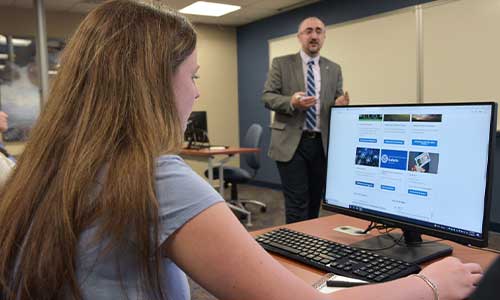Search WCSU
WCSU Essentials
Automatic translation disclaimer
Translation of this page is provided by the third-party Google Translate service. In case of dispute, the original language content should prevail.
La traducción de esta página la proporciona el servicio Google Translate de terceros. En caso de disputa, prevalecerá el contenido del idioma original.
La traduction de cette page est fournie par le service tiers Google Translate. En cas de litige, le contenu de la langue originale prévaudra.
Advance your law enforcement, public safety, and emergency management career
JUSTICE & LAW
Master of Science in Homeland Security
Advance your law enforcement, public safety, and emergency management career
JUSTICE & LAW ADMINISTRATION
Master of Science
in Homeland Security
The Master of Science in Homeland Security at Western Connecticut State University advances your law enforcement, public safety, and emergency management career. A graduate degree in this field prepares the next generation of homeland security professionals for leadership positions across the public and private sectors. Our master’s program prepares you for the future workforce of local, state and federal institutions.
A degree in homeland security explores counterterrorism, border security & Immigration policies, cybercrime, research and analysis, emergency disaster planning and other topics essential to public safety and preparedness.
Through a data-driven instructional approach, the WCSU program teaches graduate students to develop solutions by analyzing primary and secondary datasets — while also improving their knowledge of geographical information systems. Our program focuses on data analysis and crime mapping, making our graduates future-ready.
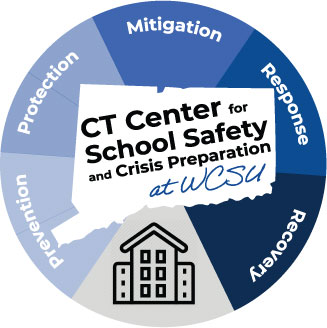
Collaboration with CT Center for School Safety and Crisis Preparation
Our graduate students collaborate with WCSU’s State of Connecticut Center for School Safety and Crisis Preparation in research, policy development, and prevention strategies regarding school safety and violence.
-
Graduate students of the master's program can apply for available internships and graduate assistantships at the Center.
-
Graduate students can also use the resources available from the Center to complete their Capstone projects.

The Naval Postgraduate School
Our Master of Science in Homeland Security Program is now part of the University & Agency Partnership Program (UAPP). This means that both the faculty and graduate students can benefit from resources that are available by the Naval Postgraduate School Center for Homeland Defense and Security (CHDS) through the UAPP partnership, its curriculum, Homeland Security Digital Library, and all other learning materials and resources.
The Master of Science in Homeland Security requires 36 credit hours. All students must complete 11 core courses (33 credits) and the Capstone project (3 credits).
* Students who have acquired possible employment or an internship may use this experience as part of their Capstone course credit.
Admission Requirements
- GPA 3.0+ or not less than 3 years of employment within the five years in criminal justice-related profession
- Current resume
- Two professional letters of recommendation
- Statement of purpose (2-3 pages – double spaced)
- Official transcripts
- The Test of English as a Foreign Language (TOEFL) may be required for non-native English speakers with limited exposure to English.
Degree Requirements
The Master of Science degree will be conferred upon the matriculated graduate student who has
- completed 36 credits with a cumulative GPA of 3.0 or better.
- participated in program-level assessments
- completed the program within six years
- filed the application for the degree with the Office of Graduate Admissions by December 1 for the May commencement, February 1 for an August conferral, or October 1 for a January conferral.
CSCU
The only graduate program in homeland security in the CSCU system, WCSU’s MS in Homeland Security course curriculum is aligned with DHS missions and practices.
Courses
Two courses (six credits) per semester (Fall / Spring / Summer); taught by an experienced faculty.
Credits & Certificates
The course curriculum encourages students to earn credits and certificates from the DHS’s Emergency Management Institute (EMI), which offers self-paced courses free of charge to those who qualify for enrollment.
CAPSTONE project
Develop a CAPSTONE project for action research on U.S. national security, DHS missions, and global disaster and emergency management via data-driven research.
Affordable
Affordable; earn your master’s degree while paying less.
DIPLOMAS
Western Connecticut State University’s diplomas don’t specify whether you earn your degree online or in person.
Start a rewarding career
Dozens of federal agencies employ graduates with a master’s degree in homeland security, including the Department of Homeland Security.
DHS deals with emerging threats from terrorism, cybersecurity, immigration and natural disasters. All of these threats require critical thinking and problem-solving skills.
According to the DHS website, “DHS offers talented new professionals flexible work schedules, student loan repayment, tuition reimbursement programs and more in a generous benefits package.”
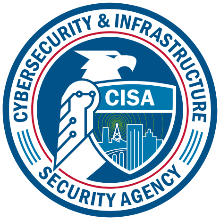
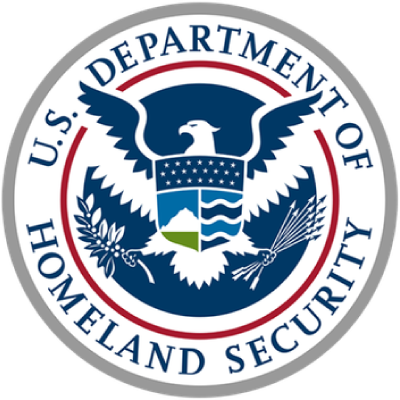

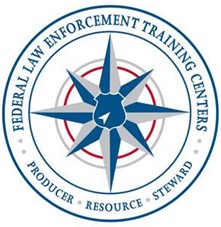






Recent Achievements
Congrats to our students, faculty, and staff for their accomplishments!

The TJ Lobraico, Jr. Award
For highest academic achievement, outstanding integrity and excellent public service, the 2024 winner is Lisa Palazzi!
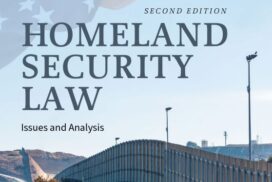
Professor Dwyer's New Book
Our JLA professor and master’s program faulty, Terrence P. Dwyer, published his book:
Homeland Security Law: Issues and Analysis
- Overview
-
The Master of Science in Homeland Security program is designed entirely for a standard 16-week ONLINE program (FALL/SPRING/SUMMER) with interactive (audio and visual) capabilities for instructors and students.
- Program Objectives
-
- Leadership and Ethic:Program graduates will demonstrate leadership adherence to ethical decision-making processes to implement homeland security strategies and emergency management plans.
- Critical Thinking & Communication:Program graduates will be able to analyze facts, generate and organize ideas, make comparisons, draw inferences, and solve homeland security-related problems.
- Leadership and Ethic:Program graduates will demonstrate leadership adherence to ethical decision-making processes to implement homeland security strategies and emergency management plans.
- Student Learning Outcomes
-
- Students will integrate principles, practices, and behaviors of effective leadership, collaboration, and organizational governance to enhance public value.
- Students will identify and assess potential terror, accident, and disaster threats to the American homeland on a data-driven and evidence-based approach.
- Students will demonstrate knowledge of ethical issues influencing leadership decisions.
- Students will judge the constitutional issues and legal challenges that will emerge from the execution and the implementation of US federal and state laws such as the Patriot Act and Presidential executive orders.
- Students will demonstrate practical, professional written communication skills when design, implement and evaluate homeland security-related strategies, policies, and plans at different levels of government or the private sector.
- Students will demonstrate effective, professional oral communication skills when making persuasive and knowledge transfer presentations.
- Students will integrate principles, practices, and behaviors of effective leadership, collaboration, and organizational governance to enhance public value.
- Resources
-
Library Resources
- Library Homeland Security Master’s Program Page
- List of Research Resources for Students (PDF)
- National Hurricane Center Information
- CIA World Factbook
- Homeland Security Digital Library
- List of Recommended Databases for Homeland Security (Note: the links on this page use UMGC accounts. Please cross reference the list with the WCSU library)
Career Center
- Locate an Internship
- Register for Handshake
- Homeland Security Careers
The Master of Science in Homeland Security program is designed entirely for a standard 16-week ONLINE program (FALL/SPRING/SUMMER) with interactive (audio and visual) capabilities for instructors and students.
- Leadership and Ethic:Program graduates will demonstrate leadership adherence to ethical decision-making processes to implement homeland security strategies and emergency management plans.
- Critical Thinking & Communication:Program graduates will be able to analyze facts, generate and organize ideas, make comparisons, draw inferences, and solve homeland security-related problems.
- Students will integrate principles, practices, and behaviors of effective leadership, collaboration, and organizational governance to enhance public value.
- Students will identify and assess potential terror, accident, and disaster threats to the American homeland on a data-driven and evidence-based approach.
- Students will demonstrate knowledge of ethical issues influencing leadership decisions.
- Students will judge the constitutional issues and legal challenges that will emerge from the execution and the implementation of US federal and state laws such as the Patriot Act and Presidential executive orders.
- Students will demonstrate practical, professional written communication skills when design, implement and evaluate homeland security-related strategies, policies, and plans at different levels of government or the private sector.
- Students will demonstrate effective, professional oral communication skills when making persuasive and knowledge transfer presentations.
Library Resources
- Library Homeland Security Master’s Program Page
- List of Research Resources for Students (PDF)
- National Hurricane Center Information
- CIA World Factbook
- Homeland Security Digital Library
- List of Recommended Databases for Homeland Security (Note: the links on this page use UMGC accounts. Please cross reference the list with the WCSU library)
Career Center
- Locate an Internship
- Register for Handshake
- Homeland Security Careers


